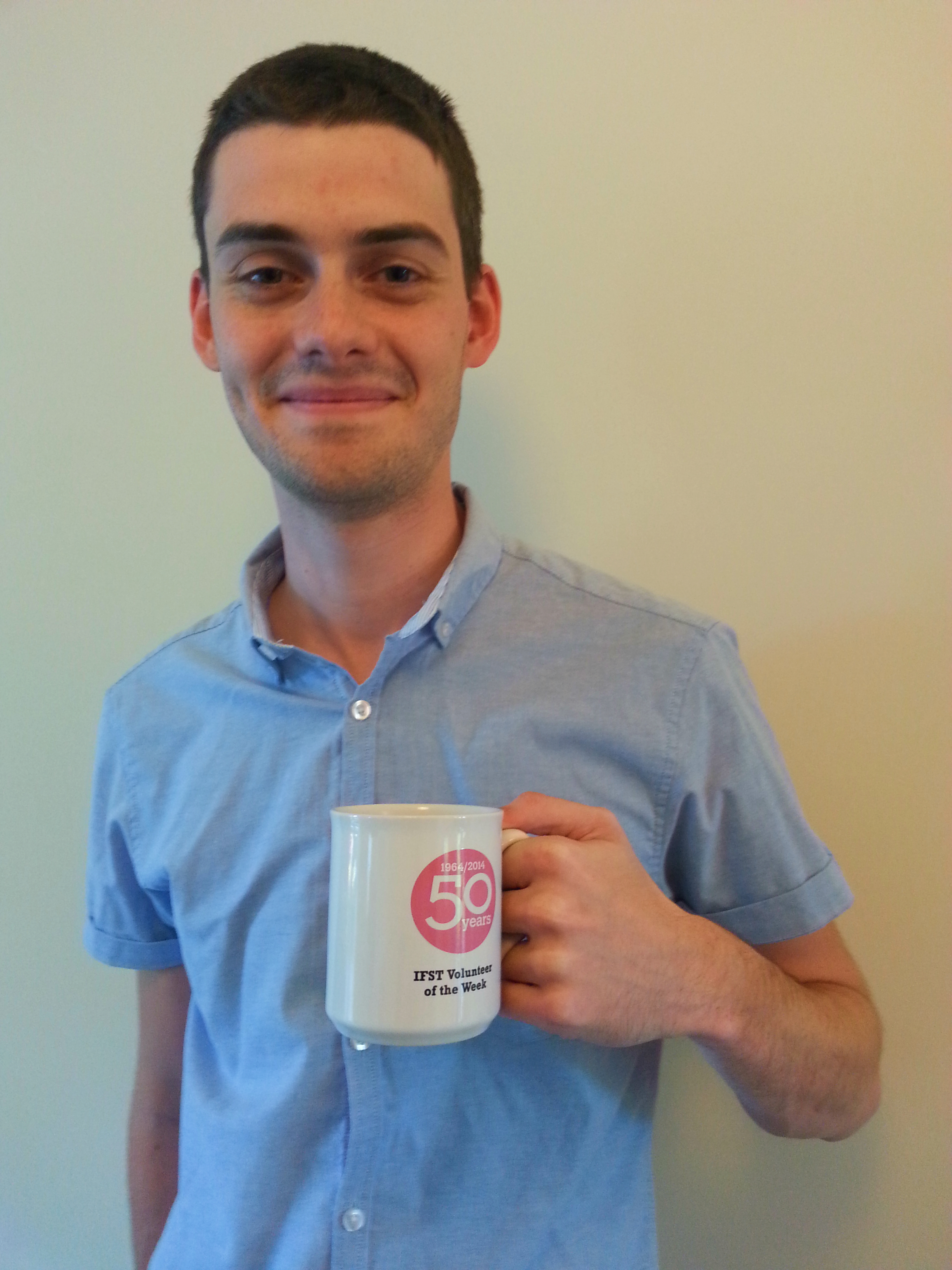Curtis Eaton is the Volunteer of the Week for his help with website testing. He is also part of the working group to establish at Student Group within IFST and the student representative on the Sensory Science Group.
You've recently volunteered for a working group to look at setting up a new student group for IFST. Tell us more.
The IFST offers a wealth of opportunities for students and this group aims to build upon the new student group by raising awareness and offering support to university societies. Having a student group within the IFST means that decisions will be made by students, for students and will give students a louder voice within the institute. I’m really looking forward to contributing to the success of this group and creating a stronger student community in the UK.
You were awarded the Sensory Travel Bursary - tell us about your experience. Why should students apply for IFST competitions and awards?
I was awarded the IFST Sensory Science Group’s 2013 Travel Bursary which contributed towards expenses to attend the 10th Pangborn Sensory Science Symposium in Rio de Janeiro, Brazil. Attending this internationally renowned conference and presenting a poster gave me the opportunity to discuss research face-to-face with professionals and other students working within sensory and consumer science. I encourage students to apply for IFST competitions and awards because they open doors to opportunities beyond the lecture theatre or laboratory.
You're also involved in the Sensory Science Group. What is it like to be involved in this?
I became the student representative of the Sensory Science Group (SSG) just over a year ago and it has been a privilege to work alongside professionals in sensory and consumer science. My major involvement has been in setting up a student working group within the SSG to more effectively cater for the relatively small community of students working within sensory science in the UK. This working group aims to facilitate networking of students involved with sensory science as well as bridge the gap between academia and industry. My PhD is now drawing to an end but I fully intend to continue my involvement with the SSG and particularly its student working group as I believe we will achieve a lot in the coming years.
Tell us something about yourself that most people wouldn't know.
I’ve taken quite an unusual route to become involved in food science. My undergraduate degree was in psychology and my final year project involved using a rodent model to test whether certain brain regions are involved with aspects of schizophrenia. This involved, among other things, testing rats’ memories, before and after an intervention, by placing them into a pool of opaque water and observing how long it took them to find a hidden escape platform that they had discovered earlier. I really enjoyed this research but now that I work within sensory science, I find that my participants don’t tend to bite as much!

